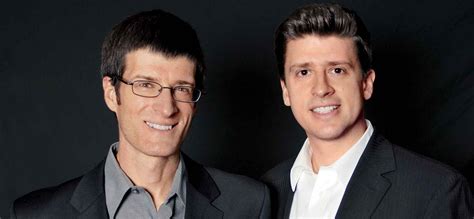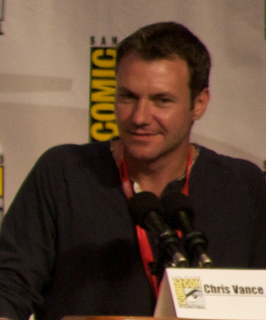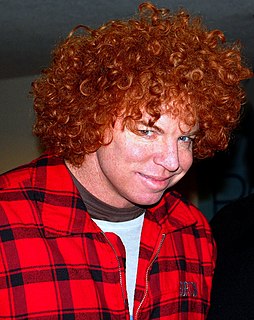A Quote by Chip Heath
Lots of us have expertise in particular areas. Becoming an expert in something means that we become more and more fascinated by nuance and complexity. That's when the Curse of Knowledge kicks in, and we start to forget what it's like not to know what we know.
Related Quotes
As things have progressed and I've gotten older, I've gotten more and more involved on the producing side. It's been a natural progression. The more you become exposed in a particular medium, the more you can bring to the table and people start trusting you. You're valued a little bit more, so you have more of a voice. It's something I would like to do, through the rest of my career.
I wouldn't know what to do with [colour]. Colour to me is too real. It's limiting. It doesn't allow too much of a dream. The more you throw black into a colour, the more dreamy it gets… Black has depth. It's like a little egress; you can go into it, and because it keeps on continuing to be dark, the mind kicks in, and a lot of things that are going on in there become manifest. And you start seeing what you're afraid of. You start seeing what you love, and it becomes like a dream.
While the dogmatist is harmful, the sceptic is useless ...; one is certain of knowing, the other of not knowing. What philosophy should dissipate is certainty, whether of knowledge or of ignorance. Knowledge is not so precise a concept as is commonly thought. Instead of saying 'I know this', we ought to say 'I more or less know something more or less like this'. ... Knowledge in practical affairs has not the certainty or the precision of arithmetic.
The only thing I know that makes me feel comfortable is to know as much as I can. Not like what the shots are going to be, but knowing enough about my character that I can forget those things. And more specifically, my lines. I have to know my lines. I have to know something really well, so I can forget it when we're doing it. And there is comfort in knowing, "Okay, there's not another stone that I could have overturned."
Intelligence is an interesting word. It is also something which, in my opinion, is misunderstood by many people. There are those who believe that we go to school to become intelligent. Or, the more experience a person has on a particular job, the more intelligent they become. This notion is not so. All knowledge is one hundred percent evenly present in all places, at all times. Aware is what you and I want to become. The more aware we become of this truth about intelligence, the better off we will be.
The word "knowledge" itself, we like to break it down into two different words, "know" and "ledge." You've got to know the ledge. Know the limitation of things. Know where they go, know where they start from. We say knowledge is the basic foundation of the universe. But everything is first based on something being known. Then, when it's known, then it can be manifested.
I think that is just a limitation of any questionnaire - that we apply a frame of reference or standard. It's a well-known finding in psychology that when people are total beginners at a skill, they tend to overrate their skill level. They don't know what they don't know. The more expert you are, the more critical you become.
The ultimate test of my understanding of the scriptural teaching is the amount of time I spend in prayer. As theology is ultimately the knowledge of God, the more theology I know, the more it should drive me to seek to know God. Not to know about Him but to know Him! The whole object of salvation is to bring me to knowledge of God. If all my knowledge does not lead me to prayer there is something wrong somewhere.



































